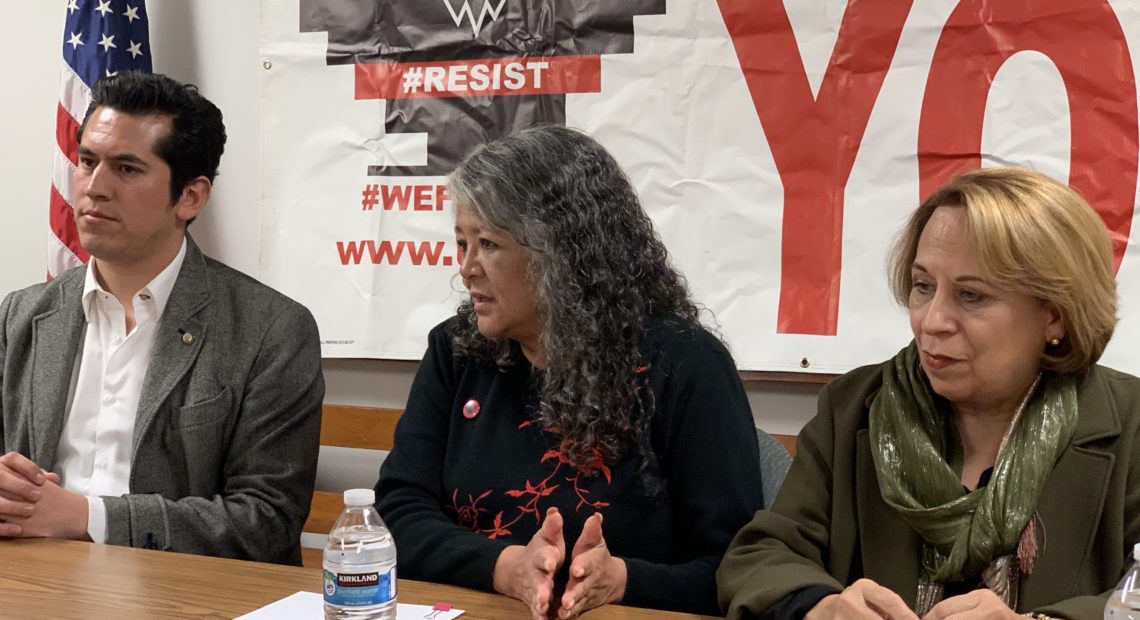
President Signs USMCA, Yakima Valley Farm Workers Talk Working Conditions With Mexican Senators
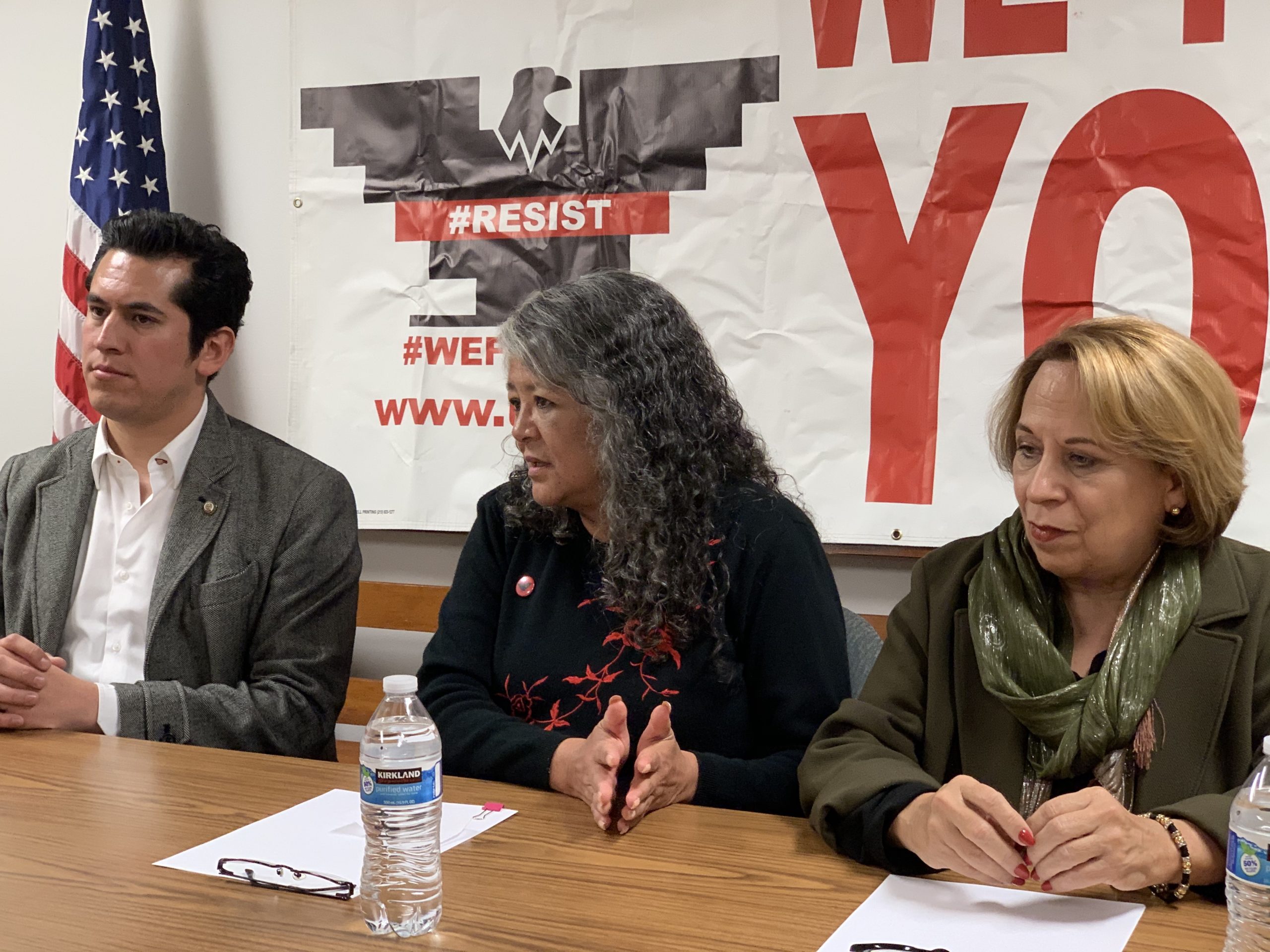
READ ON
A delegation of Mexican government officials visited the Yakima Valley Monday to meet with dairy workers, most of whom are Mexican nationals. The group was looking to expand the role of the Mexican government in protecting the rights of workers.
The delegation was led by two Mexican senators who met with dairy workers who described poor working conditions, including wage theft, long work days, and cases of sexual harassment and assault.
“For us, it’s fundamental that no Mexican citizen, wherever they may be, feel abandoned by us and their government,” Senator Bertha Alicia Caraveo said in a press conference in Yakima, conducted primarily in Spanish.
Sen. Caraveo represents the state of Chihuahua and heads the Mexican Senate’s Committee on Border and Migration Affairs. She was accompanied by fellow committee member Sen. Israel Zamora from the state of Mexico.
Zamora said their work to improve the working conditions of dairy workers will start with taking the stories they heard in Yakima back to Mexico City to plan additional actions the senate could take. That includes expanding the role of the consulate in Seattle, changing requirements for recruiting workers in Mexico and providing rights training for agricultural workers on H-2A visas.
“It’s important that we value the work of dairy workers,” Zamora said. “Every time someone goes to the supermarket to buy a gallon of milk, it’s thanks to their labor. It’s important to dignify that labor.”
The senators’ trip to central Washington came through a partnership between Mexico’s Department of Foreign Relations and United Farm Workers, a labor union for U.S. farmworkers. The transnational partnership between the union and the Mexican government is unprecedented, according to UFW President Teresa Romero.
“We’re not going to do anything overnight, but the important thing to know is that we’re going to have the support of the federal government to really find solutions for these workers,” Romero said.
The partnership with the Mexican government is not the only way UFW is trying to improve conditions for dairy workers. Last year, UFW backed a bipartisan bill in the U.S. House that would provide a path to citizenship to farmworkers while giving farmers a stable workforce.
Romero added that the partnership’s goal to improve the working conditions of dairy workers includes those not represented by the union and will focus initially on farms that are part of the Northwest Dairy Association, whose products are sold through its marketing arm, Darigold.
NWDA farms have been accused of mistreating workers in the past. UFW requested that NWDA officials meet with the Mexican delegation but they declined, according to Romero.
The Mexican delegation’s meeting with dairy workers came two days before President Trump signed a new free trade agreement Wednesday between the U.S., Mexico and Canada — known as the USMCA.
Mexico is the biggest source of foreign labor for Washington dairy farms and the biggest export market for the U.S. dairy industry, valued at $1.4 billion, according to the Congressional Research Service. That accounts for nearly 24 percent of all dairy exports, valued at $5.9 billion.
The USMCA includes reworked labor protections and mechanisms for any of the three governments to resolve conflicts through an international panel. The new agreement gives Mexico more equal power in lodging worker complaints against U.S. companies, according to Mexican Secretary of Foreign Affairs Marcelo Ebrard.
Sen. Zamora said that despite immigration debates, it’s vital that his government work with the U.S. to protect workers in dairy farms.
“The collaboration between the United States and Mexico is growing,” Zamora said. “We’re linked culturally, economically, and see each other in more fraternal terms every day.”
Related Stories:
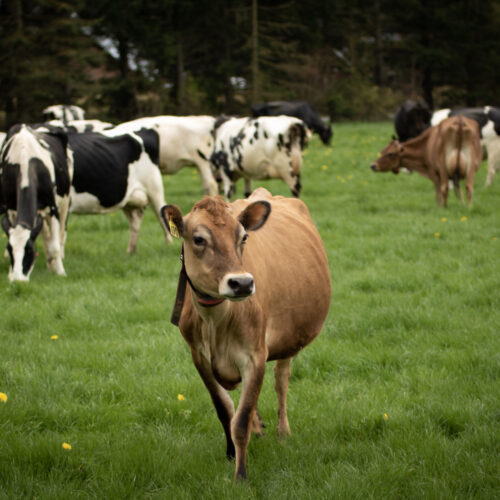
Bird flu in cattle stressing Northwest dairy operators
Barley, a Jersey cow, and some of her herdmates on pasture last spring at Steensma Dairy & Creamery. (Credit: Steensma Family Dairy & Creamery) Listen (Runtime 1:06) Read Some Northwest
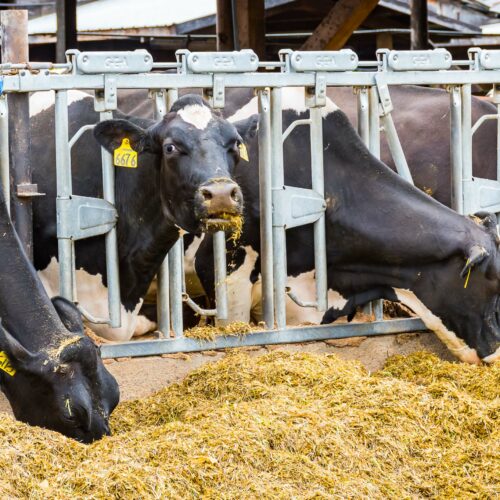
Migratory birds could cause avian influenza in Northwest dairy cattle
Northwest dairy cattle eat rations out of a feed bunk. (Credit: Washington State Department of Agriculture) Listen (Runtime :58) Read Experts say they are not sure how the highly-pathogenic avian
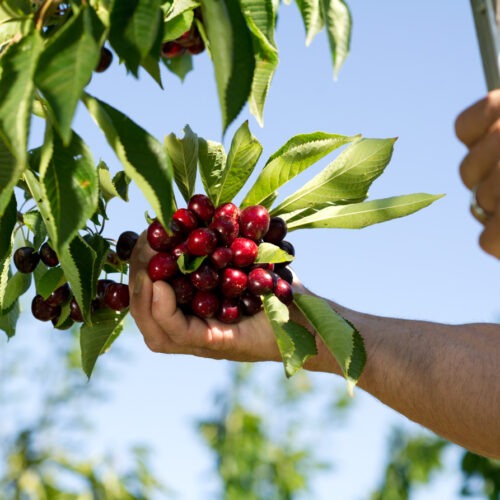
Cherry Harvest Begins As Farm Labor Falls Short
The labor shortage among Northwest farms is nothing new, but Mike Gempler of the Washington Growers’ League is hopeful agriculture tech could help. Listen (Runtime 1:03) Read It’s no secret















